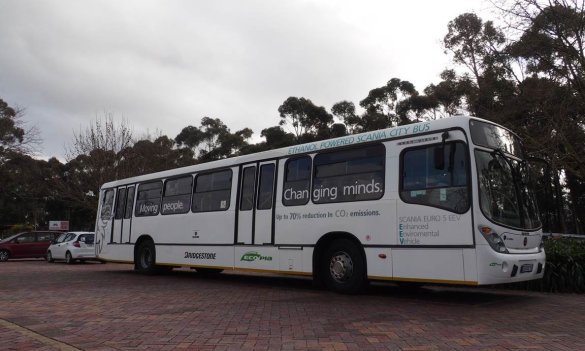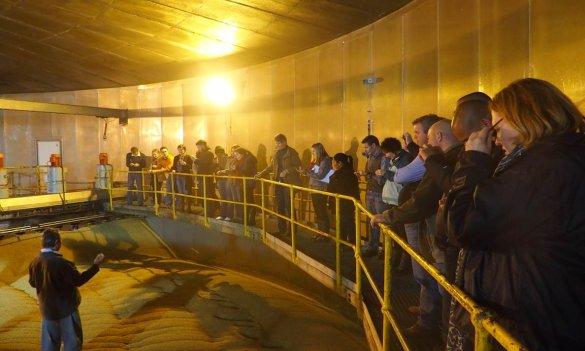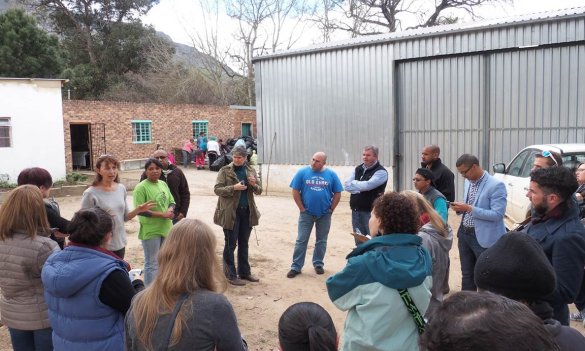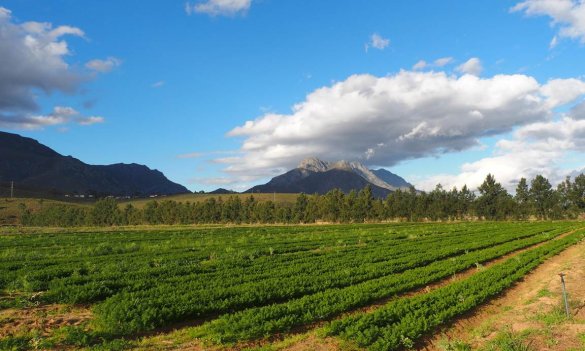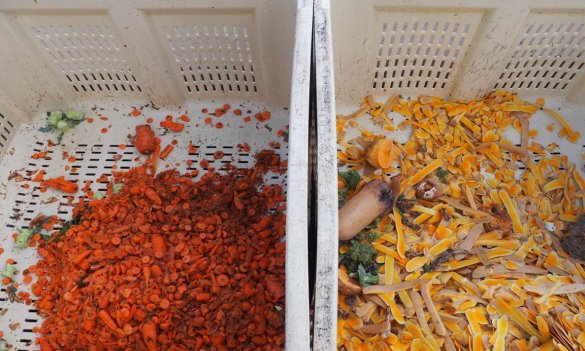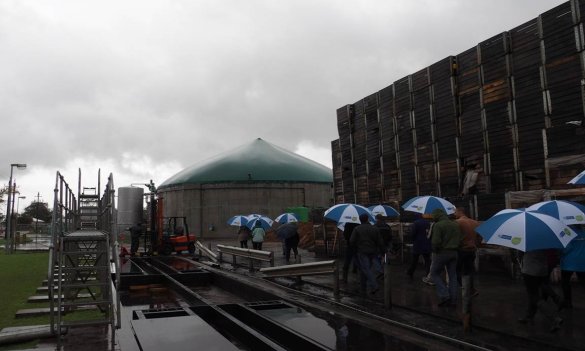The Food Forward Project delivered its first food waste tour in the Theewaterskloof Municipality at the end of August 2014. The participating individuals included delegates from Cape Town organisations such as the Food Bank, WWF SA, Cape Town Market, Enviroserv, Food4thought, Groceries Unlimited, Cape Town Partnership, Closing the Loop, Long table project, Y-waste and Greencape, as well as local Theewaterskloof delegates from the Department of Agriculture, Local Economic Development and Agri-Processing.
Starting at SAB with a tour of the malting facilities in Caledon, the group learnt all about the Barley industry, the malting process and various waste streams that are created. It appears that a facility such as SAB has very minimal waste that isn’t used – by-products from the malting process are converted into high-protein animal feed. The next stop was the Genadendal swap-shop, run by local volunteers from the community and the Greyton Transition Town. Fresh farm produce left over from the local Greyton market, along with various other useful items such as clothing, books and stationary, are swapped for bags of dry recycling. The project creates multiple benefits, including providing poor members of society a way to “purchase” food and other useable items, addressing public litter problems and reducing the amount of edible and valuable/recyclable resources going to landfill. The last visit on day one included a visit to the Genadendal small scale farmers collective, where delegates were exposed to a vegetable production operation, which produces for the frozen vegetable market in Cape Town. The farmers outlined a number of potential opportunities to reduce inefficiencies, but what emerged as most important to a successful operation and minimal waste was good market access and networking connections. The day was completed with a delicious meal at the Greyton Eco Lodge cooked by the Pure Café, and an interesting discussion of the day’s activities.
Day two started at a frozen vegetable processing facility in Genadendal, where guests were shown the steaming and freezing process, and discussed existing and potential ways to deal with the waste products and increase efficiencies. Opportunities included steam and heat recapture and a secondary market for the “vegetable dust” created in the facility process. The second visit on day two was to the Kromco fruit packaging facility in Elgin, where the group was shown the efficiency and precision of a large-scale, technologically advanced operation. Any waste during the packaging and storage stages was said to be sent for juicing or animal feed. What really stood out, besides the scale and efficiency of the operation, was that the sorting and transportation process of apples was done with water, whereby the natural floating ability of an apple is used to minimise damage. The last stop involved visiting the next stage in the chain, the Elgin Fruit Juice facility in Grabouw, where juice is made from damaged or sub-standard fruit. After the juice is extracted, pulp, along with any other non-juicable fruit, is fed to the on-site anaerobic bio-digester. Currently, the majority of the energy used at the juice plant is created from the methane gas produced in the bio-digester. An impressive operation indeed.
Overall, the group identified some critical intervention points and learnt a great deal, adding another piece to the food waste and food system puzzle. In total, already five new connections have been made among the participants and the facilities visited. These include initiating discussions to start on-farm vermin-composting for the small-scale farmers, three donation and support opportunities for the fresh food swap-shop and new potential business arrangement to purchase the left-overs from the frozen veg manufacturing process.
Keep following the Food Forward project for news on the next tour. Next stop West Coast.

